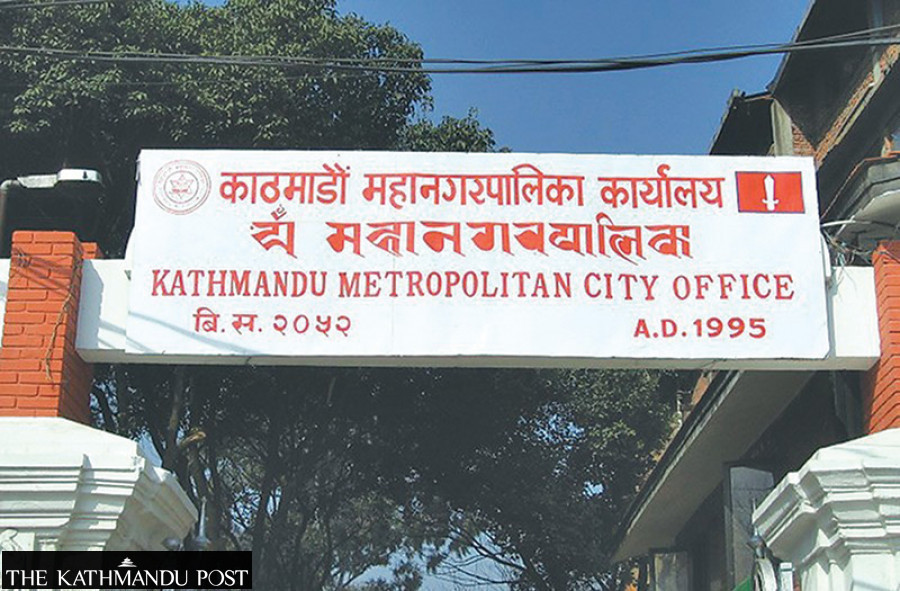Kathmandu
KMC asks private school students to register online for scholarships in grade 11
Kathmandu municipal officials say they are going to use the Optical Mark Recognition system to mark papers.
Anup Ojha
With the Secondary Education Examination (SEE) results out, the Kathmandu Metropolitan City (KMC) has announced plans for conducting tests to select students for scholarships provided by the private schools.
A day after the SEE results were made public, the KMC, on Friday, published a notice with details including the timeline of the application and tests schedule.
It has asked all the private schools operating within the metropolis to give at least 15 days for students to submit their applications for scholarships since the publication of SEE results.
The reason, the KMC said, was to facilitate those students who come from far-flung parts of the country.
“The attention of the KMC has been drawn toward complaints that students from remote areas had earlier been unable to apply for scholarships,” said the notice published on Friday. Municipal officials said the students from remote areas couldn’t apply for the scholarships as the educational institutions gave them a short notice.
There are 504 private schools and 89 community schools in the metropolis.
On Saturday, the KMC again published another notice for SEE graduates who want to apply for scholarships in private schools that fall within the Kathmandu metropolitan area. The metropolis announced an online form for scholarships, which the interested students should fill up between July 13 and July 28.
Only the students who passed the SEE from community schools are eligible to apply for the scholarships.
Meanwhile, the KMC has fixed the exam date for the scholarship programme on August 5. It said that questions will be asked from grade 10 textbooks with 100 objective questions.
Sita Ram Koirala, education officer at the Education Department of KMC, said the exam will be held in centres monitored through CCTVs.
They, however, are yet to identify the exam centres, Koirala said. “As multiple choice questions (MCQs) will be asked, we will be using the Optical Mark Recognition (OMR) system to check them,” he added. “Then we will be allocating a quota for students from poor backgrounds, those living with disability and members of the oppressed groups.”
KMC Mayor Balendra Shah has focused on the education sector in recent weeks.
Earlier, on July 2, Shah had announced that the KMC itself will select students who will get class 11 scholarship in private schools, starting from the current academic session.
In the first week of July, the KMC published the names of 342 private schools within the metropolis that failed to provide details of scholarships they have given to students up to grade 10. Following this, many schools rushed to provide their scholarship details. By June 20, 465 out of 504 private schools in the metropolis submitted the details; the KMC estimates a total of 1,300 students will benefit from it.
In its notice published on Friday, the City has asked all the private schools to provide the actual number of new students admitted to class 11 by filling a Google form by July 16. Alongside the number of new students they have admitted, the schools are also asked to provide a scholarship quota they can provide in specific subjects.
The Nepal Guardians’ Federation has welcomed the KMC’s move but with a caveat. “The idea itself is really good and it will benefit poor and marginalised students,” said Suprabhat Bhandari, chair of the federation. “But how properly it will be conducted is yet to be seen.”
He said if all the local units in the country apply this method in a transparent way, hundreds of poor students would get a chance to receive higher education.
Reshu Aryal, KMC’s former education adviser, said the scholarship scheme is being brought with good intent. “But its success would depend on how it will be conducted,” she said. “For that, the system should be sophisticated and the process authentic.”
Aryal had resigned from her post on June 18, citing a ‘conflict of interests’ and reservations over Mayor Shah’s recent actions.
Ever since being elected the Kathmandu mayor, Shah has been stirring up one controversy after another, dividing the public. While many have accused him of making unilateral decisions, he has been receiving praise for his interventions in the education sector.
Shah’s drives such as ‘Textbook-free Friday’ in community schools, his decision to provide scholarships to 10 percent of the students (mainly to those from poor economic backgrounds), and KMC’s directive to private schools to provide salaries to teachers on par with public schools have all been received well.




 9.83°C Kathmandu
9.83°C Kathmandu.jpg)











